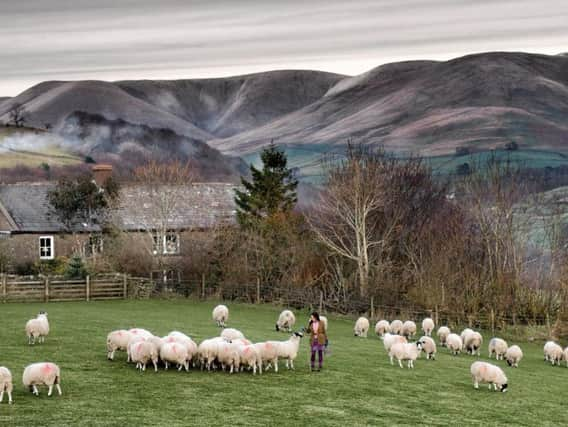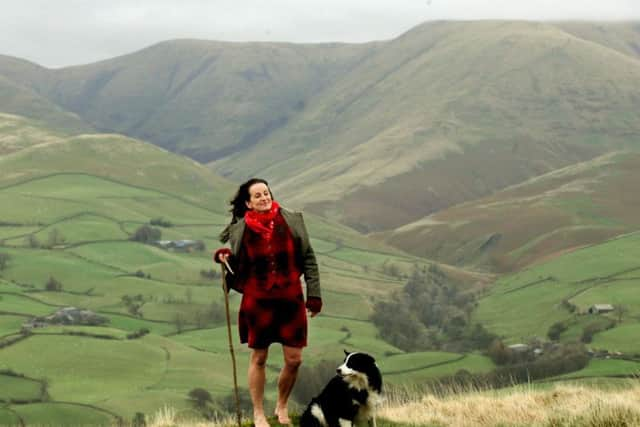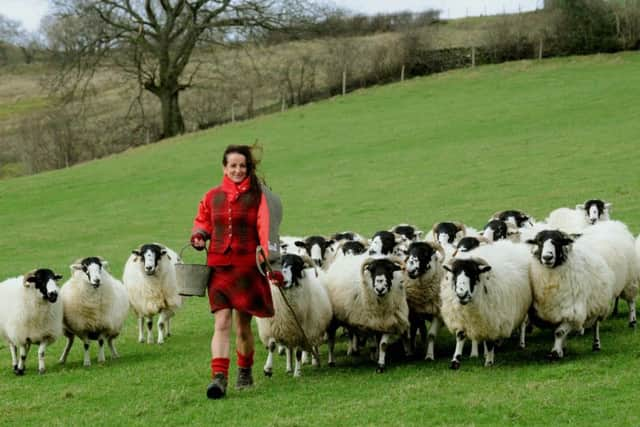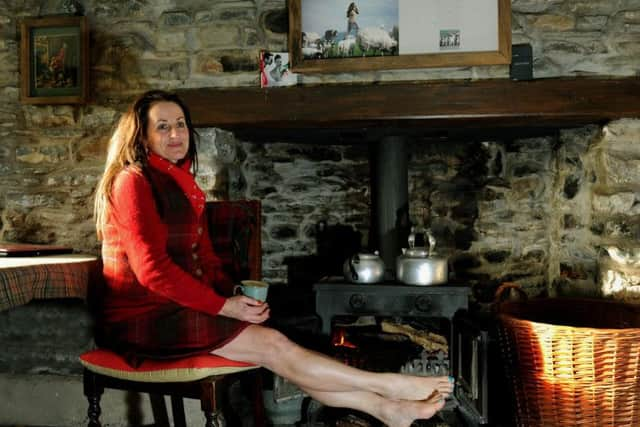The exhibition that tells the story of a Dales shepherdess and her 'one-woman farm'


She has run a 37-acre upland sheep farm near Sedbergh for the past 20 years - and now her life has been documented in a photography exhibition at the Dales Countryside Museum in Hawes.
Alison is a tenant at Shacklabank, a farm which is owned by the Church. A third-generation farmer, she has diversified her business and shown a head for entrepreneurship as she battled to make a living from her land.
Advertisement
Hide AdAdvertisement
Hide AdYorkshire Shepherdess Amanda Owen on the harsh reality of life in Upper SwaledalePhotographer Ian Lawson shadowed Alison for the 'Shepherdess - One-Woman Farm' exhibition, which opened this summer.


He was looking for hardy sheep farmers in the Dales and the Lake District to study, but found many of them reluctant to be photographed. Alison, however, was keen to meet him.
Alison's traditional farming methods are obvious from the images, but she has also embraced change.
The Diocese of Bradford granted Alison the tenancy because Shacklabank is reserved for those who have no other means of starting a farm. She arrived with her husband, but they later separated and she raised her daughter on the farm.
Advertisement
Hide AdAdvertisement
Hide AdShe opened a shepherd's hut for visitors, began serving cream teas and led barefoot walking tours of the stunning fells.


Her ewes provide wool that is sent to the Halifax Spinning Company to be turned into yarn. The fleeces are then worked into fashionable tweed jackets and sold to customers.
How Yorkshire's inspiring female farmers are creating a powerful platformShe has also allowed pasture land that had been drained and turned into a meadow to return to nature. Species such as newts and lapwings have made it their habitat.
The previous tenant had a herd of dairy cows and had used fertiliser to produce more grass for them. Alison re-wilded the land, planting wildflowers and using organic muck. She also fenced off bluebell woods, and curlews have returned to her allotment.
Advertisement
Hide AdAdvertisement
Hide AdAlison admits that on two occasions the financial hardship almost forced her to quit the farm, but she rode it out and made a success of the business.


Today, she has 150 sheep as well as hens, ducks and a fell pony that she uses instead of a quad bike.
“It’s a story about how I’ve survived for 20 years on a tiny hill farm in the Yorkshire Dales. I came here with £60 in the bank and no tractors or trailers or any sheep, I didn’t inherit the farm and I didn’t move here because my husband was a farmer.”
"I’m a Yorkshire lass and I was born and bred in Sedbergh, which was in Yorkshire, and my family have farmed for generations. We’re from Garsdale so the Yorkshire Dales are important to me and Ian, and this farm epitomises everything the Dales are about.”
Advertisement
Hide AdAdvertisement
Hide AdAlison first came to people’s attention a decade or so ago when she was dubbed ‘the barefoot shepherdess’ - a phrase that arose because she did guided fell walks barefoot around the hills surrounding her home.
The book came about after Ian rang her up out of the blue asking if he could do a photo diary of life on her farm. She was initially reticent but after he showed her some of his work she agreed.
Amanda Owen on her 'back to basics' life at Ravenseat Farm“The initial idea was to do this over a 12-month period, but it’s ended up being eight years. I’ve tried to stay true to the farming way of life and what I love is that Ian’s captured that with his brilliant photos,” she says.
Growing up, Alison knew legendary Dales figures such as Hannah Hauxwell, who used to visit her grandparents for tea, and Alfred Wainwright.
Advertisement
Hide AdAdvertisement
Hide Ad“In some small way I wanted to almost prove that a farm run by one woman, her daughter and a couple of dogs could survive.
“There were bitterly cold winters where it was freezing in the bedrooms and we were trying to burn wet wood because there was nothing else. When I fell over on the ice there wasn’t a husband to help pick me up and when I was ill there wasn’t someone else who could drive the tractor.”
Alison has transformed her fortunes and that of the farm, though she fears this way of life is disappearing.
“It’s our heritage and it reminds us of a place where we all want to be. If we lose our small hill farms then we lose a large part of who we are,” she says.
Advertisement
Hide AdAdvertisement
Hide Ad“Small hill farms are going because the farmers can’t make a living and they’re perfect places for people from the cities to buy a beautiful farmhouse and a few acres of land.”
The exhibition runs until September 8 at the Dales Countryside Museum.